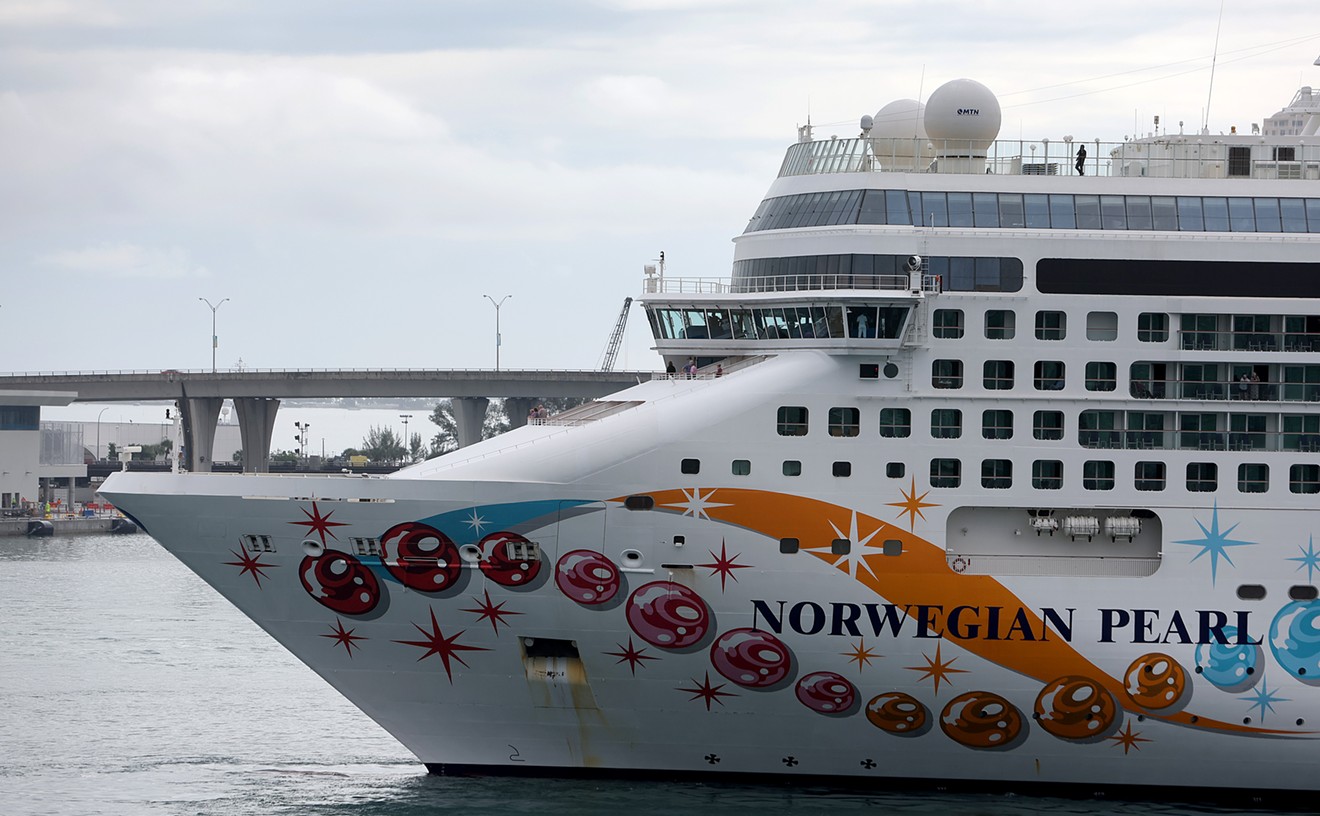Under the Anti-Terrorism and Effective Death Penalty Act of 1996, all non-U.S. citizens convicted of an aggravated felony (a category that includes a wide range of offenses, from murder to the possession of drug paraphernalia) are to be deported to their country of origin at the conclusion of their sentence. But the American government's policy is to not send Cubans back to their homeland. As a result, hundreds of Cubans who have finished their sentences remain jailed, trapped in a limbo called "administrative detention."
"I consider them political prisoners, because they are in jail for a political reason," argues Burke, who was hired as executive director of the coalition after running a refugee-processing center in Haiti as an independent contractor for the State Department .
The coalition is financed by the Straus Family Fund, a San Francisco-based nonprofit foundation. "We are latecomers to this issue," concedes Faye Straus, secretary of the coalition. Straus became involved after watching a documentary on detainees from the 1980 Mariel boatlift, when Castro used the opportunity of a mass exodus to send Cuba's criminals to the United States. Many of those subsequently convicted of crimes in this country have remained in prison regardless of the length of their sentences. "I was in absolute shock that this could happen in the United States," she says. The fund sponsored a conference on Cuban detainees, which in turn spawned the coalition, whose goal, Straus says, is to "identify and locate the detainees, make sure they are provided with due process, and help them once they are released from incarceration."
Nathaniel Burke, a University of Miami law school graduate, spends most mornings with relatives of Cuban detainees, listening to their stories. On a recent Monday, three generations of the Borrego family filed into the coalition's small office off SW Eighth Street. They came on behalf of Walter Borrego. Convicted on drug and weapons charges, his sentence ended this past March, but instead of being released, the former truck driver sits in an INS detention center in Virginia. Borrego and his parents came to Miami from Cuba in 1970, but he never obtained citizenship.
Burke explains that he's not particularly interested in Borrego's crime because he has already paid his debt to society. "It doesn't matter whether he was guilty or innocent," he tells the Borregos in Spanish. "I am here because I think he is in prison illegally." The family seems grateful just to meet someone who appears to want to help and is not asking for money. (They paid a Virginia immigration lawyer $2000 but their son's situation remained unchanged.)
Among the documents Borrego's mother Evangelina hands Burke is a letter from his former employer Church & Tower, the Miami construction firm headed by the family of the late Cuban exile leader Jorge Mas Canosa. "Mr. Borrego was an excellent employee, and his possibility for rehire is very good," wrote his supervisor in an attempt to sway authorities to release him.
The 34-year-old Burke types the facts of the case into a computer database, explaining to the family that he cannot dedicate himself exclusively to the matter but imploring them to keep him up-to-date. "I can't be his lawyer," he says. "I am working on the cause."
After the family leaves, Burke, who spent three years at the Dade County Public Defender's Office, admits to a certain degree of frustration. Although immigration authorities have the capacity to free detainees, no mechanism exists for them to do so. "There is no way I can approach this on a case-by-case basis," he says. "It needs to be more global."
Yet changing American policy toward the Cubans will be difficult, he believes. Burke places part of the blame on a powerful national lobby that wants to keep prison beds filled. "The crime rate in the United States is going down and there are a lot of sheriffs and prison guards who could lose their jobs," Burke contends. "The Cubans are the perfect inmates -- they are not going anywhere."
The detainees' only hope is a groundswell of political support that would force Congress to review the issue and create a new legal procedure especially for the Cubans. Seeking political muscle was one of the main reasons the coalition decided to open its office in Miami. Says Burke: "This is the only city in the country where Cubans have influential ties to Washington."
Rep. Lincoln Diaz-Balart says he is well aware of the detainees' situation. "It very clearly violates the rule of law, but there is no easy solution," asserts the Cuban-American politician. "It would be a tough sell to get legislation passed in Congress." Diaz-Balart points out that the detainees are deportable, and most legislators seem willing to wait until Fidel Castro dies to do so. As it is, he tries to intervene when cases come to his attention. "Many people do get released," he insists.
Burke has yet to find much support within Miami's Cuban community for his cause. "Cubans in Miami don't know or don't care," he complains, tracing their coolness to Mariel. Cuban exiles, he believes, are still sensitive about being stereotyped as criminals. "Cubans are like anyone else -- some are going to be bad apples," he says. "What they don't realize is that they are being discriminated against."
Oddly enough, Cuban offenders who came to the United States during Mariel have a better chance of resolving their situation. The Mariel Cubans stuck in prison are guaranteed a review of their cases every year by immigration authorities, who can rescind deportation orders and release the offenders. (Under a 1984 U.S.-Cuba agreement, however, the two sides agreed to the return of 2746 Mariel refugees in custody at that time. As of the beginning of October, 1362 had been repatriated.) As far as non-Mariel Cubans in administrative detention, INS officials say the agency does not track them. "There is no yearly review process," says INS spokesman Andrew Lluberes, "but one is under consideration."
The number of detainees is bound to grow. In addition to the antiterrorism law, immigration legislation passed in 1996 makes deportation retroactive for those convicted of an aggravated felony at any time in the past. Suddenly noncitizens with years of law-abiding residence in the United States face deportation.
Such is the case of Ernesto Botifoll, who, upon returning in November from a business trip to Peru, was told he needed to answer questions at the Miami INS office about his legal status. Botifoll, who spent twenty years in Castro's jails as a political prisoner before coming to the United States, was convicted in 1989 of conspiring to purchase missiles and sell them to the Nicaraguan contras. A judge, rather than sending him to prison, sentenced him to parole. But the conviction qualified as an aggravated felony; when the 69-year-old Botifoll showed up for his INS meeting, he was taken into custody and hustled off to the Krome detention center. Three weeks later the local INS director released him pending a February hearing.
On Nathaniel Burke's office wall is a large map of the United States. As cases come into his office, he places push pins on the map to mark the locations of detained Cubans, virtually the only way he has to follow cases that are spread across the nation. Publicizing their plight has been equally difficult. One recent afternoon, he took his case to Miami's Cuban radio stations. In a phone interview on La Cubanisima (WQBA-AM 1140), Burke urged listeners with detained family members to write or call him with their stories. "Cubans have a false sense of security in Miami," he says afterward. "If you are Cuban and not a citizen, be careful.










